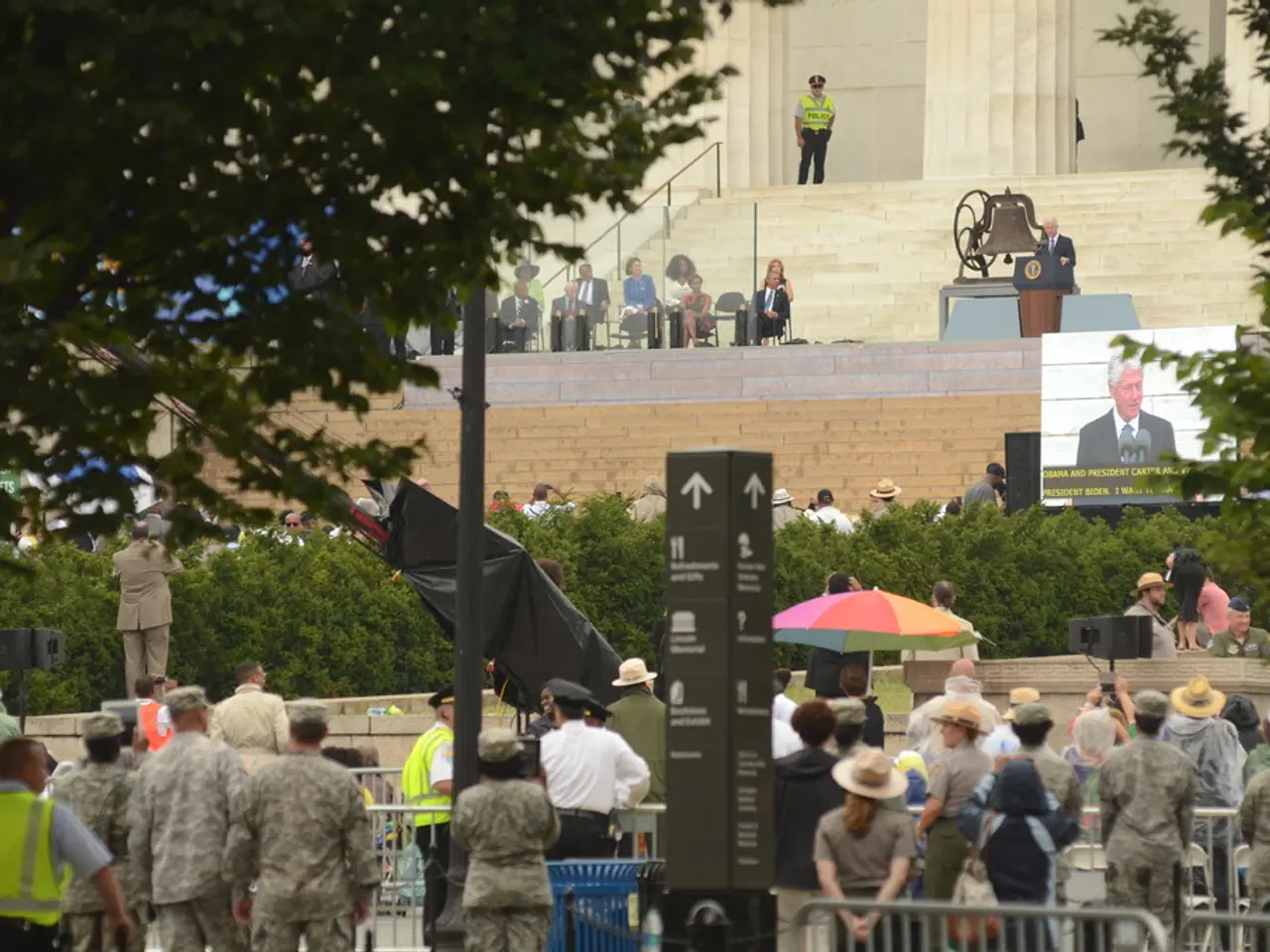IRANWILL HOST AN OFFICIAL FROM THE INTERNATIONAL ATOMIC ENERGY AGENCY, WITH NO NUCLEAR SITE INSPECTIONS SCHEDULED FOR THE VISIT
In a significant development, Iran has suspended its cooperation with the International Atomic Energy Agency (IAEA) following President Masoud Pezeshkian's order on July 3, 2025. This decision has been upheld by Iran's Parliament, leading to a halt in active inspections and the suspension of data sharing under the Nuclear Non-Proliferation Treaty (NPT).
The suspension comes amidst escalating tensions between Iran and Israel, which resulted in a 12-day conflict in June and targeted attacks on several key Iranian nuclear sites. The IAEA's most recent report reveals a significant increase in Iran's stockpile of uranium enriched to 60 percent, edging closer to weapons-grade uranium enrichment levels.
Iran's Foreign Minister, Abbas Araghchi, confirmed the suspension of cooperation during a visit by the IAEA's deputy head, Massimo Aparo, scheduled for Monday. However, the visit does not include inspections of Iran's nuclear facilities.
Iran denies the IAEA report, claiming it is based on "unreliable and misleading information" provided by Israel. In response, Iran asserts that the IAEA resolution paved the way for the Israeli and US airstrikes.
Despite the suspension, limited talks have occurred between the IAEA and Iranian officials. On August 11-12, 2025, both sides discussed a "future framework for cooperation." However, Iranian officials criticized the IAEA and demanded reforms, alleging the agency was biased against Iran.
The European powers, including the UK, France, and Germany (E3), have expressed frustration over Iran's cessation of IAEA cooperation. They argue that this violates Iran's safeguards and NPT obligations, leaving the agency unable to verify the peaceful nature of Iran's nuclear program and raising concerns at the UN Security Council.
The E3 has warned about triggering the UN sanctions snapback mechanism by October 2025 if Iran does not resume cooperation and address their concerns. However, Iran has not responded favorably or indicated willingness to reverse the cooperation ban.
As a result, the situation remains tense with diplomatic efforts ongoing but stalled. The risk of renewed sanctions is increasing, and the future of Iran's nuclear program remains unclear. The new framework for cooperation, if established, will be based on a law passed by Iran's Parliament, requiring the approval of the Supreme National Security Council.
- Amidst the tense geopolitical landscape of war-and-conflicts and crime-and-justice, the suspension of Iran's cooperation with the International Atomic Energy Agency (IAEA) on July 3, 2025, has sparked new debates in the realm of politics, particularly in policy-and-legislation, as the European powers (E3) have threatened to trigger the UN sanctions snapback mechanism by October 2025 if Iran does not resume cooperation.
- General-news outlets have been closely monitoring the stalled diplomatic efforts between Iran and the IAEA, as limited talks have occurred but have been met with criticism from Iranian officials demanding reforms within the agency, alleging bias against Iran, thus affecting the future of Iran's nuclear program and global peace and security.






